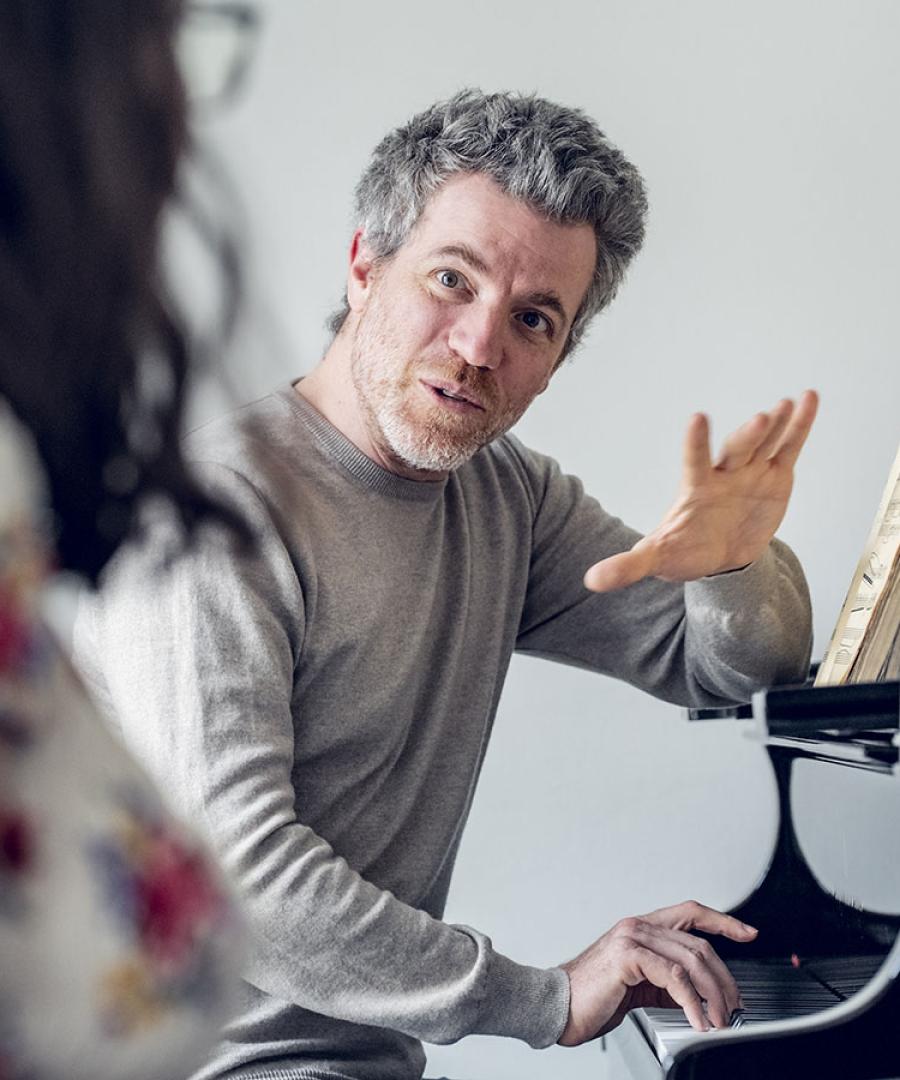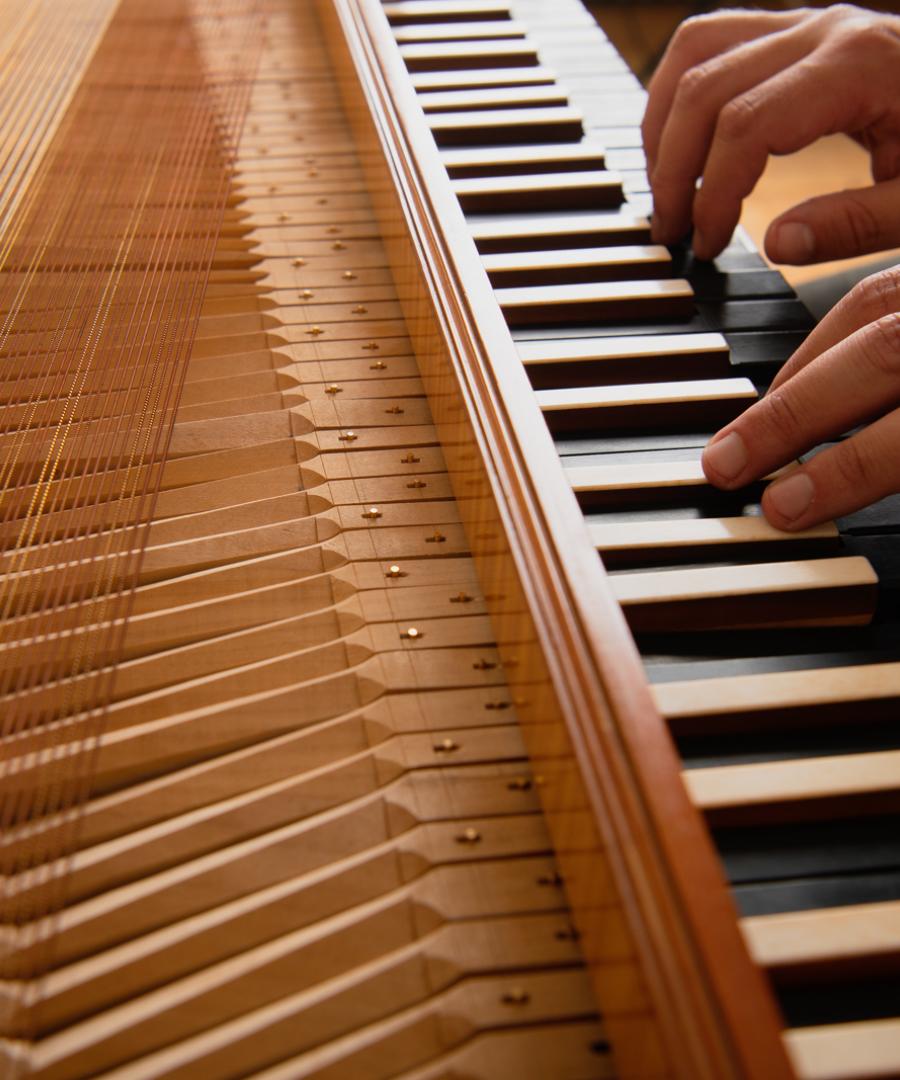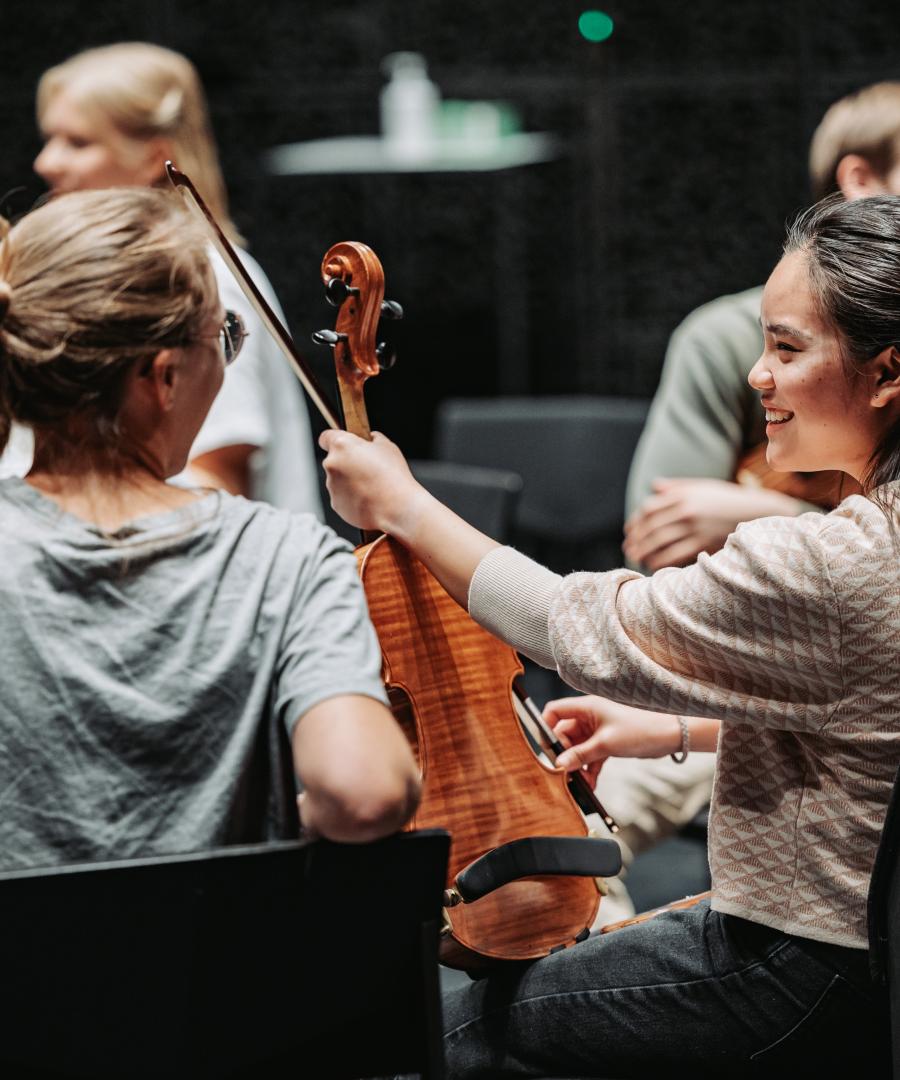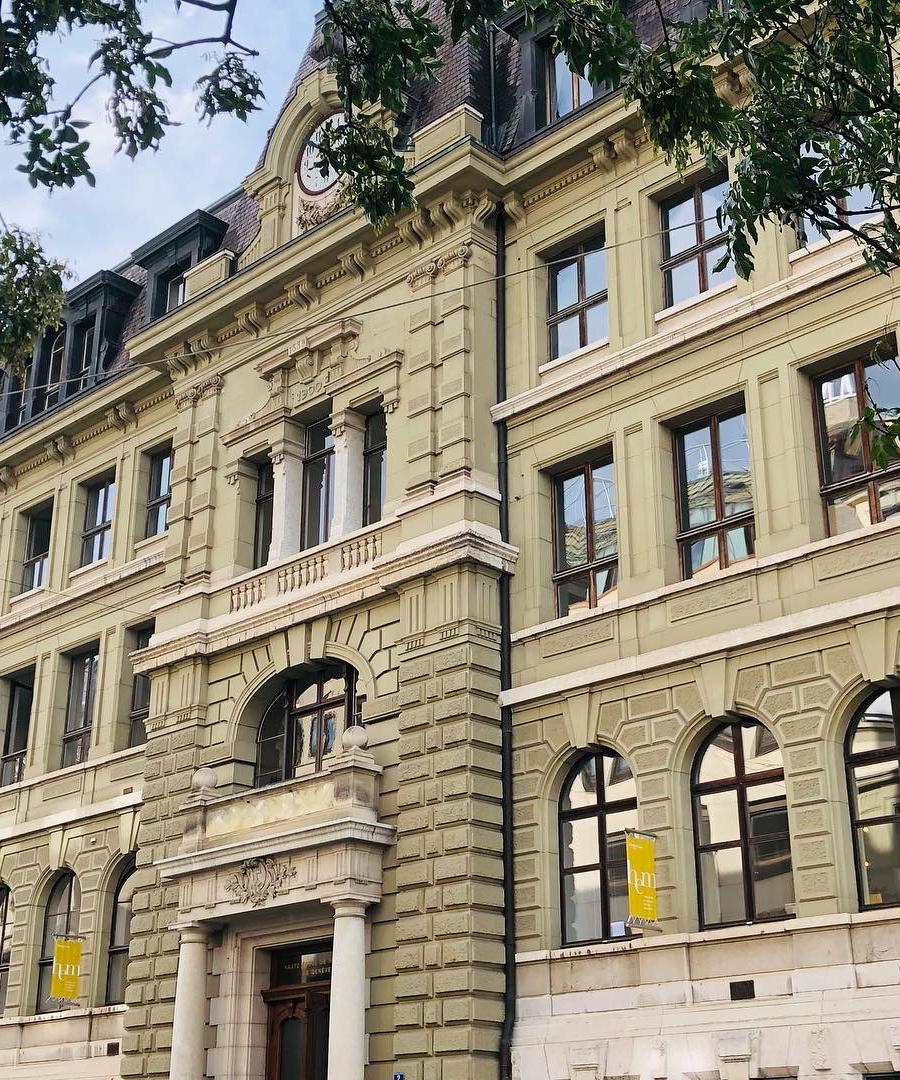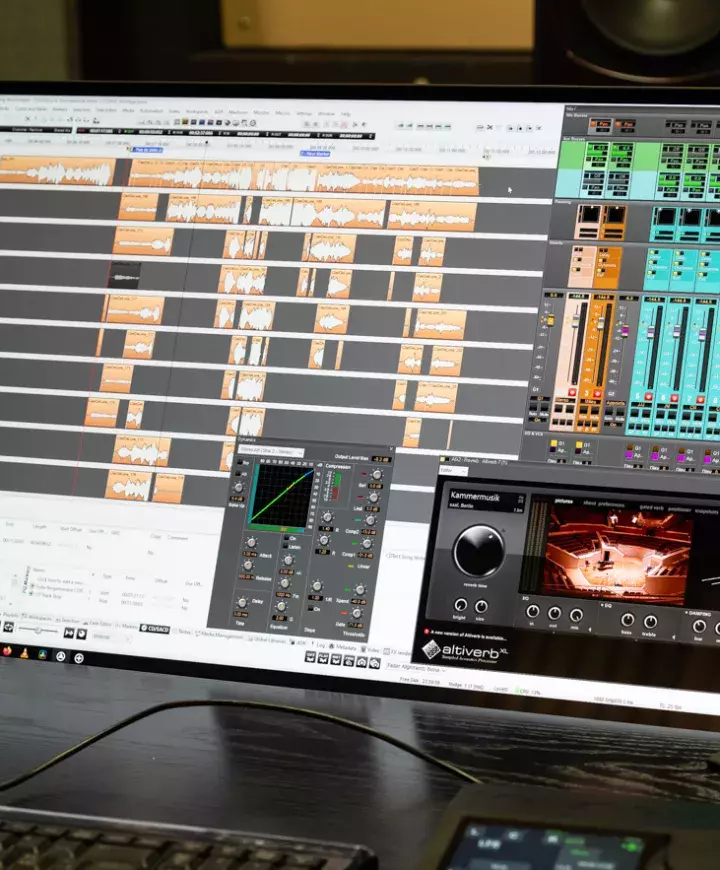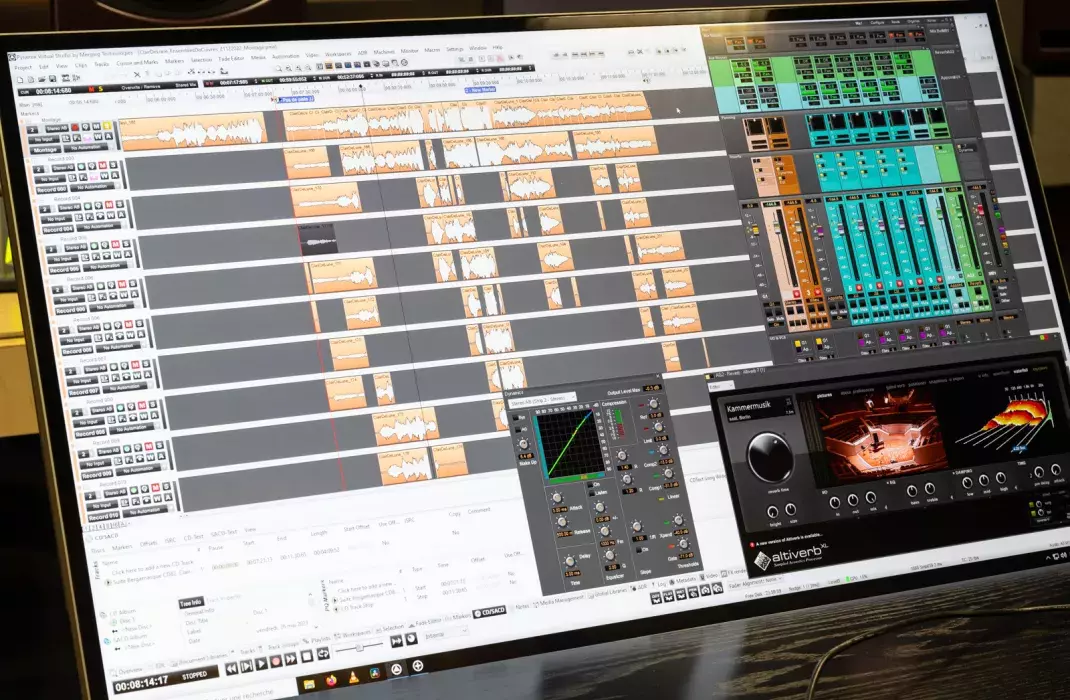- Studies
- Disciplines
- Research
- Events
- The school
Composition of mixed music
This course prepares students for working as a composer, with a mixed approach using acoustic, electro-acoustic and electronic instruments for the composition, transformation and synthesis of sound.
The level of education on completion of the Master’s is advanced, and includes knowledge in the field of electronic music and interactive media that will enable young graduates to access a range of professional activities, in the fields of music, dance or theatre.
The field of activity is fairly broad and includes:
- The composition of instrumental or mixed music;
- The composition of electronic or electro-acoustic music for diverse applications, such as studio mixing or for the cinema, and the creation of images or other media;
- The interpretation of electronic music in a concert or studio environment;
- The teaching of technology associated with music.
Study plan
Abbreviations :
e = marked exam
p = validation by participation
rs = internship report
ce = co-assessment
cc = continuous assessment
SA = autumn semester
SP = spring semester
A1, A2, etc. = first, second year, etc. S1, S2, etc. = first, second semester, etc.
Admission criteria
Candidates must present a dossier comprised of instrumental, mixed and electro-acoustic œuvres. They must demonstrate mastery of the basis behind the operation of the electro-acoustic chain (capturing of sound, broadcasting, mixing) and show basic knowledge of sound synthesis and electronic music environments in real time.
Partnership with IRCAM
The Institut de Recherche et de Coordination Acoustique / Musique (IRCAM) in Paris has developed, in parallel to its fundamental missions of musical research and creation, significant training and pedagogical activity. Thanks to an agreement with IRCAM, the HEM can send its students to Paris for pedagogical exchanges.
This collaboration includes:
- The ability for students taking a Master’s in mixed composition at the HEM to conduct part of their first year of training at IRCAM, after selection;
- The ability for students who have taken the preceding course to maintain ties with IRCAM, not least in the form of involvement in certain pedagogical and professional activities organised at IRCAM.
The agreement also provides for the making available, by both partner institutions, of facilities for producing Master’s projects.
Study programme
Primary training
The primary training module contains classes aligned with the composer’s primary activity: composition classes, individual monitoring of œuvres, teaching directly associated with the writing or design of acoustic, electronic, electro-acoustic, multimedia or mixed media œuvres.
Special training
This module offers future composers the ability to get the most advanced training possible in music theory and in the orchestration, and to become aware of the importance of taking care over their ties with performers, with a view to creating their works.
Additional training
This module leaves students with a margin for choice, particularly as to the nature of their Master’s project. It also includes training in electronic and multimedia composition.
Master’s Project
The Master’s project consists of:
- A written paper setting out some research (potentially with the participation of a university or research centre) on a subject linked to the composition / musical analysis;
- A presentation during a seminar, analysing a composition or an aspect of a composition from the last forty years.
- A musical creation wholly (or partially) coordinated by the student.
